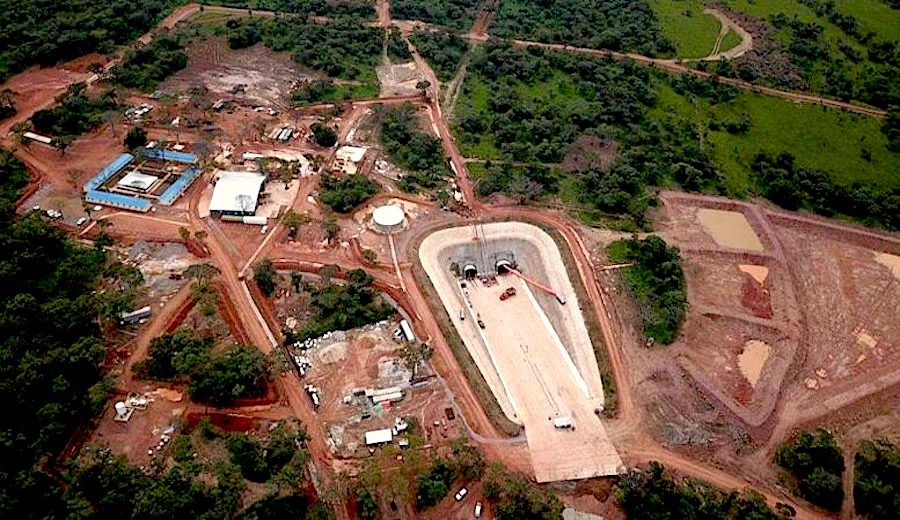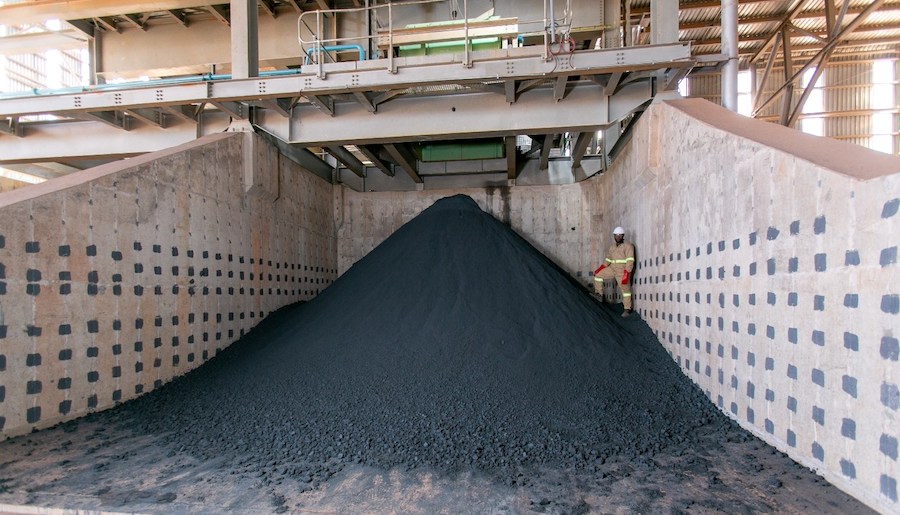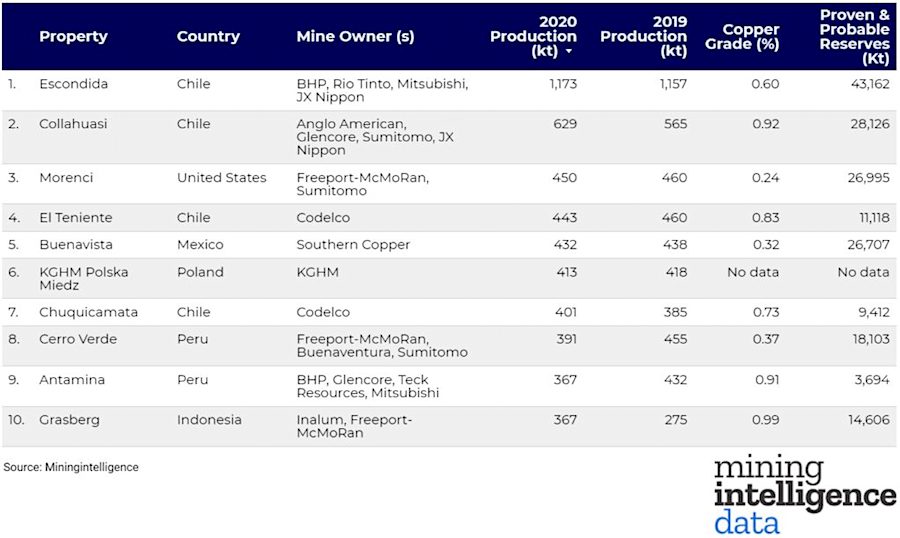
Kamoa-Kakula copper project, 25 km west of Kolwezi in the Democratic Republic of the Congo. (Image courtesy of Ivanhoe Mines.)
Canada’s Ivanhoe Mines (TSX: IVN) has begun producing copper concentrate at its Kamoa-Kakula project in the Democratic Republic of Congo (DRC) months ahead of schedule as the metal continues to trade close to all-time highs.
Kakula, the first mine planned at the concession, is initially forecast to generate 3.8 million tonnes of ore a year at an average feed grade “well in excess of 6% copper” over the first five years of operation, the company said.
Ivanhoe and partner Zijin Mining said first ore was introduced into the concentrator plant on May 20 to perform initial hot commissioning tests on the ball mills and other processing equipment.
As of May 25, 5% to 6% of copper ore was being conveyed directly from Kakula’s underground mining operations to the run-of-mine stockpile and the concentrator.
Operations are set to ramp up this year to reach between 80,000 and 95,000 tonnes of copper in concentrate, eventually reaching an annual peak of more than 800,000 tonnes
Ivanhoe’s co-chairperson Robert Friedland described first production from Kamoa-Kakula as a “historic moment” for Ivanhoe and the DRC. The country’s President, Felix Tshisekedi, said it was a clear sign that the country was open for business and investment.
“Discovering and delivering a copper province of this scale, grade and outstanding ESG credentials, ahead of schedule and on budget, is a unicorn in the copper mining business,” Friedland said in a separate statement.
The mining veteran noted that while the exploration journey started well over two decades ago, the Kakula deposit was discovered a little over five years ago. “This is remarkable progress by the mining industry’s glacial standards from first drill hole to a new major mining operation,” he said.
Kicking off production at Kamoa is indeed a momentous event for the copper market. Most of the current top producing mines are decades old and, except rare exceptions such as SolGold’s Cascabel in Ecuador and Anglo American’s Quellaveco project in Peru, there haven’t been major new discoveries in years.
While copper projects are in the pipeline, producers are wary of repeating oversupply mistakes of past cycles by speeding up plans at a time when mines are getting a lot trickier and pricier to build — one reason why copper prices are near decade highs at above $4 per pound.
The copper industry needs to spend upwards of $100 billion to close what could be an annual supply deficit of 4.7 million metric tonnes by 2030, according to estimates from CRU Group. The potential shortfall could reach 10 million tonnes if no mines get built, commodities trader Trafigura has said.
Friedland, who made his fortune from the Voisey’s Bay nickel project in Canada in the 1990s, has been working on Kamoa-Kakula for ten years.
World’s no.2, and the greenest
Operations at Kamoa-Kakula are set to ramp up this year to reach between 80,000 and 95,000 tonnes of copper in concentrate. After several phases of expansion, the mine’s peak annual copper production will be more than 800,000 tonnes.
The executive believes the project will become the world’s second-largest copper mine and also the one with the highest grades among major operations. The concentrator is slated to produce concentrate grading around 57% copper.
See how Kamoa-Kakula fares among the world’s top 10 biggest copper mines:
The Vancouver-based company has also vowed to produce the industry’s “greenest” copper, as it works to become the first net-zero operational carbon emitter among the world’s top-tier copper producers. Friedland has not set a target date for achieving that goal.
Expansion in sight
Given the current copper price environment, Ivanhoe and Zijin are exploring expanding production capacity from the current 7.6 Mtpa capacity (to be implemented in two phases of 3.8 Mtpa) to 11.4 Mtpa. This may be achieved by adding output from other targets in the concession — Kansoko, Kamoa North (including the Bonanza Zone) and Kakula West.
Kamoa-Kakula is a strategic partnership between Ivanhoe Mines (39.6%), Zijin Mining Group (39.6%), Crystal River Global Limited (0.8%) and the DRC government (20%).
Shares in Ivanhoe shot up on the news, trading 3.4% higher at C$9.31 a piece in Toronto early morning. So far this year, the stock has climbed almost 25%.
BMO Metals Andrew Mikitchook said Wednesday’s news was an important milestone for Ivanhoe shareholders. “We expect further revaluation of the shares as the mine ramps up over the next months and the Phase 2 expansion (remains ahead of schedule) is delivered by Q3 2022,” he said.
Looking ahead, Mikitchook said investors would watch for three Kakula-Kamoa milestones: ongoing monthly operational updates, 2021 costs guidance, and updates on copper concentrate offtake arrangements.


No comments:
Post a Comment